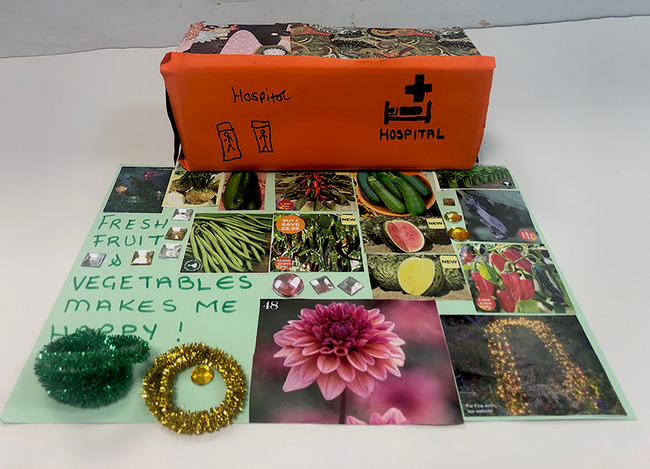Goal 3: Good health and well-being
Ensure healthy lives and promote wellbeing for all at all ages
Our research
Healthcare and wellbeing have been transformed by developments in technology in recent years. The University of Bristol has made significant contributions to this via our research that seeks to improve patient treatments and quality of life. One project in 2023, led by Bristol researchers, saw the creation of wearable tech that monitors stress hormones to give early warning and diagnostic information to help people with endocrine diseases. Wearable tech was also trialled in a 2024 study that aimed to improve treatments and support for people with Parkinson’s Disease.
Bristol researchers have also been part of a major international study working towards the development of a cure for HIV. Published in March 2024, the team, led by a Bristol researcher and a colleague from Western University, Canada, identified a particle that is 100 times more effective than other candidate therapeutics. This discovery could help millions of people living with HIV.
Another study, shared in July 2024, saw Bristol researchers working with colleagues at Boston University, USA, to identify genetic markers in the body that can help identify patients who have had a stroke who are at greater risk of having a second stroke or other cardiovascular event. This will enable drug discovery and treatment to help improve patient outcomes.
Our students
Three Bristol Medical School students launched a startup company in April 2024 to help address racial inequalities in cancer diagnosis. Having learned about lower skin cancer survival rates and increased risk of misdiagnosis for people with black and brown skin, the students started a company to share diverse, more representative images of skin conditions, aiding students and clinicians in learning to recognise warning signs better and earlier and improve outcomes.
A student from our School of Chemistry raised more than £7,500 for charity by running three marathons in three days, despite never having run a marathon before. His incredible feat was intended to raise both awareness and funds for the men’s mental health charity Movember and the Matt Hampson Foundation, an organisation that provides specialist rehabilitation for young people seriously injured through sport. The student was inspired to act after losing a friend, and after another friend suffered a spinal injury in a car accident.
Our communities
Bristol Dental School (BDS) has social and civic impact at its heart, delivering clinical training through the provision of primary care directly to the community. In 2023/24, more than 18,000 patients received free appointments, and more than 400 children got check-ups and treatment through partnerships with local schools to reach excluded groups. In October and November 2023, BDS students and staff attended community events in St Paul’s and Southmead to share oral health advice and free samples with local families, and more families visited the Dental School for a Halloween themed open day event.
The University partnered with local organisation Wellspring Settlement, a community group based in the Barton Hill area of the city, to hold a series of workshops to enable local people to share their experiences and thoughts on reducing health inequalities. Co-produced by community researchers and local residents, the project created art pieces and facilitated discussions about what people wanted and needed to live better, healthier lives, leading to a policy briefing in 2024 for those working in this area.

Ourselves
Colleagues from across the University gathered in November 2023 for a workshop on young people and mental health. Over 70 staff registered for the event run by the Elizabeth Blackwell Institute for Health Research, which brought together our researchers with colleagues from a range of student support roles. Topics included University wellbeing services, student career anxiety and resilience, decolonisation and mental health, breaking down barriers, digital opportunities and challenges, legal frameworks around mental health, understanding autistic students, co-designing wellbeing programmes, and co-production of research on mental health.
June 2024 saw the launch of a scheme through the Elizabeth Blackwell Institute that offered small pots of seed funding to enable researchers to develop partnerships that will help tackle some of our greatest global health challenges. Funds were provided for projects looking at antimicrobial resistance profiling with partners in South Africa, health guidelines for antimicrobial prescribing with partners in Kenya, virus modelling with partners in Cambodia, and climate impacts for water-related disease with partners in in South Africa and Ethiopia.
